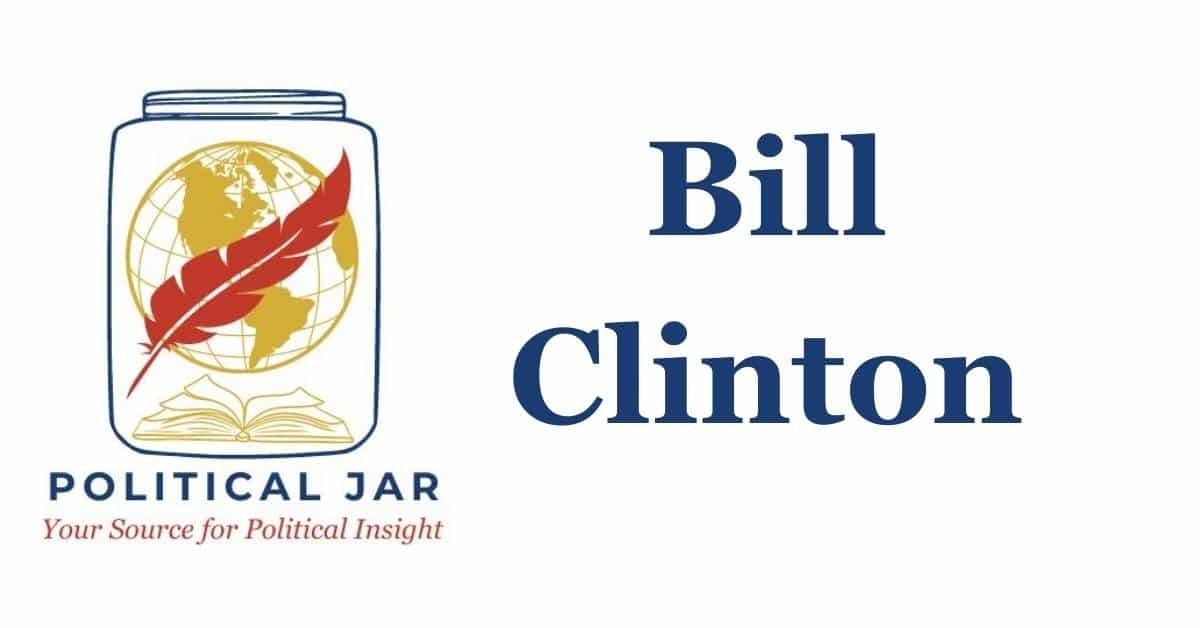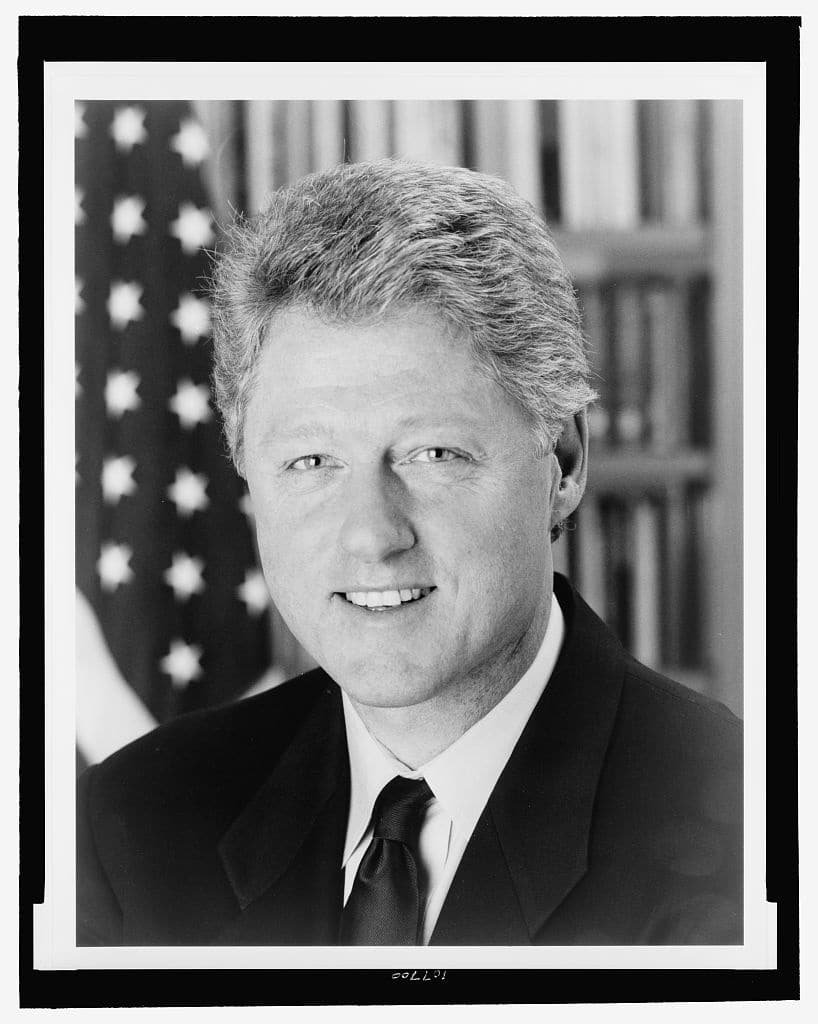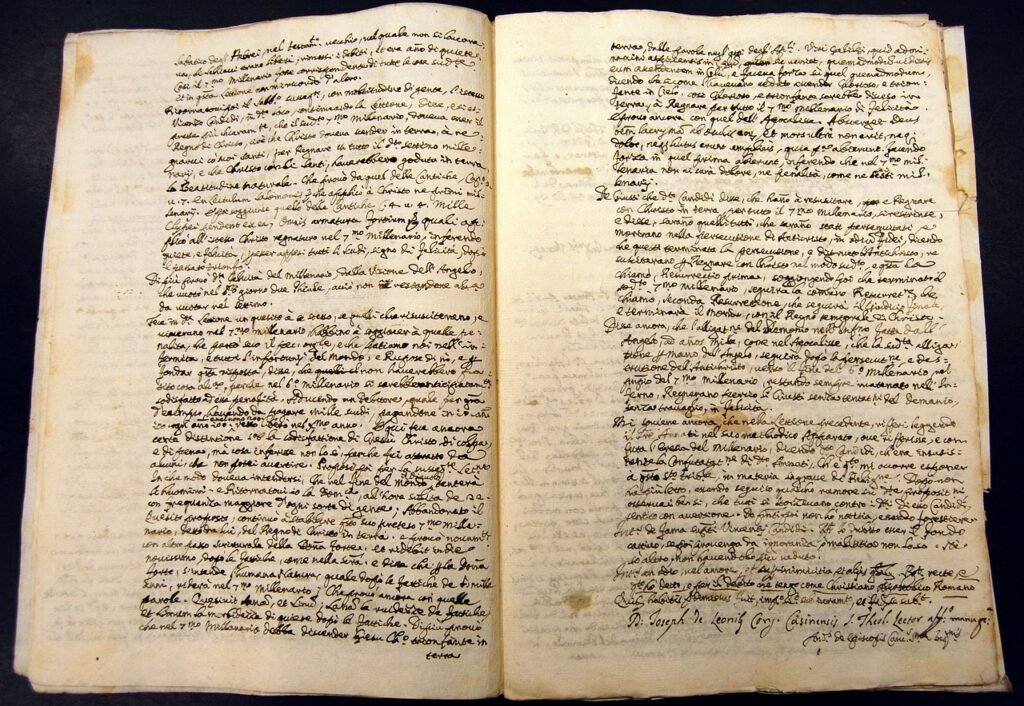




Bill Clinton
William “Bill” Jefferson Clinton, the 42nd President of the United States, served from 1993 to 2001. His presidency was marked by economic prosperity, significant legislative achievements, and substantial controversy. Born on August 19, 1946, in Hope, Arkansas, Clinton’s journey from a small-town boy to the White House exemplifies resilience, charisma, and political acumen.
Early Life and Education
Bill Clinton was born William Jefferson Blythe III, named after his father, who died in a car accident three months before his birth. His mother, Virginia Dell Cassidy, later married Roger Clinton Sr., and Bill took his stepfather’s surname. Clinton grew up in a tumultuous household marked by his stepfather’s alcoholism and domestic violence, but he found solace and inspiration in his mother’s resilience and determination (Branch, 2009).
Clinton attended Hot Springs High School, where he was an active student leader, excelling in academics and participating in numerous extracurricular activities. A pivotal moment in his youth was meeting President John F. Kennedy in 1963, which solidified his ambition to pursue a career in public service. Clinton went on to attend Georgetown University, where he majored in International Affairs. During his time at Georgetown, he interned for Senator J. William Fulbright, a vocal critic of the Vietnam War, further shaping his political views (Harris, 2005).
After graduating from Georgetown in 1968, Clinton won a Rhodes Scholarship to study at Oxford University. Although he did not earn a degree from Oxford, his time there broadened his perspective on global issues and introduced him to influential figures. Clinton later attended Yale Law School, where he met Hillary Rodham, who would become his wife and a significant partner in his political career. He graduated from Yale in 1973 (Harris, 2005).
Early Political Career
Clinton returned to Arkansas after law school and began teaching law at the University of Arkansas. His first foray into politics was an unsuccessful run for the House of Representatives in 1974. Despite the loss, Clinton’s campaign garnered attention and set the stage for his future political career. In 1976, he was elected Arkansas Attorney General, where he focused on consumer protection and utility rate reform (Branch, 2009).
In 1978, at the age of 32, Clinton was elected Governor of Arkansas, becoming the youngest governor in the country. His first term was challenging, marked by controversies and political missteps, which led to his defeat in the 1980 gubernatorial election. However, Clinton’s resilience and determination saw him rebound, and he was re-elected as governor in 1982. He served five more terms, during which he focused on educational reform, economic development, and infrastructure improvement. His tenure as governor showcased his ability to work across party lines and implement progressive policies (Harris, 2005).
The Presidency: Domestic Policies and Economic Prosperity
In 1992, Clinton won the Democratic nomination for president, selecting Senator Al Gore as his running mate. His campaign, centered on the slogan “It’s the economy, stupid,” resonated with voters concerned about the recession and economic stagnation. Clinton’s charisma, policy expertise, and ability to connect with ordinary Americans helped him defeat incumbent President George H.W. Bush and independent candidate Ross Perot (Hamilton, 2003).
Clinton’s presidency was marked by significant domestic achievements, particularly in the areas of economic policy, healthcare, and welfare reform. One of his early successes was the implementation of the Omnibus Budget Reconciliation Act of 1993, which raised taxes on the wealthiest Americans and cut federal spending. This policy contributed to a period of sustained economic growth, low unemployment, and budget surpluses during the latter part of his presidency (Hamilton, 2003).
Clinton also championed healthcare reform, though his ambitious plan to provide universal health coverage was ultimately defeated in Congress. Nevertheless, his administration achieved several incremental healthcare reforms, including the establishment of the Children’s Health Insurance Program (CHIP), which expanded coverage for millions of low-income children (Harris, 2005).
In 1996, Clinton signed the Personal Responsibility and Work Opportunity Reconciliation Act, commonly known as welfare reform. This legislation significantly altered the welfare system by imposing work requirements and time limits on assistance. While the reform was controversial and criticized by some for its impact on vulnerable populations, it was seen by others as a necessary step to encourage self-sufficiency and reduce dependency on government assistance (Branch, 2009).
Foreign Policy and Global Engagement
Clinton’s foreign policy was characterized by efforts to promote democracy, human rights, and economic globalization. He navigated complex international challenges, including conflicts in the Balkans, the Middle East, and Africa. One of the most significant foreign policy achievements of his administration was the negotiation of the Dayton Accords in 1995, which ended the Bosnian War and established a framework for peace in the region (Halberstam, 2001).
Clinton also played a crucial role in advancing the peace process in Northern Ireland, supporting the Good Friday Agreement of 1998, which brought an end to decades of sectarian violence. His administration’s engagement in the Middle East peace process included facilitating the Oslo Accords between Israel and the Palestine Liberation Organization, though a lasting peace agreement remained elusive (Hamilton, 2003).
Clinton’s presidency saw the expansion of NATO and the establishment of trade agreements such as the North American Free Trade Agreement (NAFTA) and the creation of the World Trade Organization (WTO). These initiatives aimed to promote economic growth and integration, though they also sparked debates about the impact of globalization on American workers and industries (Harris, 2005).
Impeachment and Scandal
Clinton’s presidency was marred by personal scandals and legal challenges, most notably the Monica Lewinsky affair. In 1998, it was revealed that Clinton had engaged in an extramarital affair with Lewinsky, a White House intern. His initial denial and subsequent admission of the affair led to a perjury investigation by independent counsel Kenneth Starr (Harris, 2005).
The scandal culminated in Clinton’s impeachment by the House of Representatives on charges of perjury and obstruction of justice in December 1998. However, he was acquitted by the Senate in February 1999 and remained in office. The impeachment saga polarized the nation and overshadowed his second term, though it also highlighted his resilience and ability to maintain public support despite personal controversies (Branch, 2009).
Personal Life and Character
Bill Clinton’s personal life has been a subject of significant public interest and scrutiny. His marriage to Hillary Rodham Clinton, whom he met at Yale Law School, has been both a partnership and a political alliance. Hillary Clinton’s own political career, including her tenure as a U.S. Senator, Secretary of State, and presidential candidate, has been intertwined with Bill Clinton’s legacy. Their daughter, Chelsea Clinton, has also pursued a public life, contributing to various philanthropic and advocacy efforts (Harris, 2005).
Clinton’s charm, intelligence, and ability to connect with people have been hallmarks of his public persona. However, his personal flaws and indiscretions have also been well-documented, leading to a complex and often polarizing legacy. Despite the scandals, Clinton’s ability to articulate a vision for America and navigate the political landscape has cemented his place as a significant figure in modern American history (Branch, 2009).
Post-Presidency and Legacy
After leaving office in 2001, Clinton continued to be an active and influential public figure. He established the Clinton Foundation, focusing on global health, economic development, and climate change. The foundation’s initiatives have had a substantial impact, providing resources and support to communities around the world. Clinton’s post-presidential work has earned him praise for his continued dedication to public service (Hamilton, 2003).
Clinton also collaborated with former President George H.W. Bush on various humanitarian efforts, including disaster relief in the aftermath of the Indian Ocean tsunami in 2004 and Hurricane Katrina in 2005. These efforts demonstrated Clinton’s commitment to bipartisan cooperation and his ability to leverage his influence for global good (Halberstam, 2001).
Clinton’s legacy is multifaceted. His presidency is often credited with economic prosperity and significant policy achievements, particularly in the areas of fiscal responsibility, welfare reform, and healthcare expansion. His foreign policy initiatives, including efforts to promote peace and economic globalization, have had lasting impacts on international relations (Harris, 2005).
However, his legacy is also marked by the personal scandals that led to his impeachment, which continue to shape public perceptions of his character and leadership. Despite these controversies, Clinton’s ability to maintain public support and his post-presidential contributions to global humanitarian efforts highlight the enduring influence of his leadership (Branch, 2009).
Final Summary
Bill Clinton’s life and presidency reflect the complexities and challenges of leadership in the modern era. From his early days in Arkansas to his rise to the White House, Clinton demonstrated a remarkable ability to connect with people, navigate political challenges, and implement significant policy reforms.
Clinton’s presidency, marked by economic prosperity, domestic achievements, and significant foreign policy initiatives, left a lasting impact on the nation and the world. His post-presidential work further solidified his commitment to public service and global humanitarian efforts. Despite the controversies and personal flaws, Clinton’s legacy remains a testament to the power of resilience, charisma, and political acumen in shaping history.
References
Branch, T. (2009). *The Clinton Tapes: Wrestling History with the President*. Simon & Schuster.
Halberstam, D. (2001). *War in a Time of Peace: Bush, Clinton, and the Generals*. Scribner
Hamilton, N. (2003). *Bill Clinton: Mastering the Presidency*. PublicAffairs.
Harris, J. F. (2005). *The Survivor: Bill Clinton in the White House*. Random House.
Smith, J. E. (2007). *FDR*. Random House.
